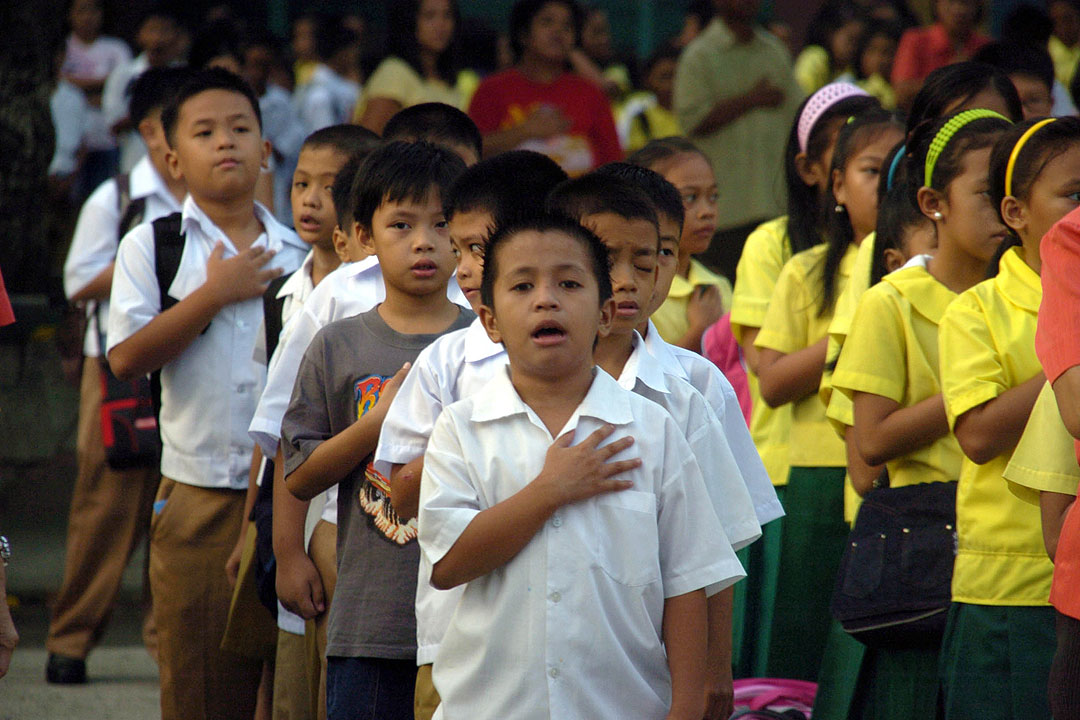The “Oplan Kalusugan (OK) sa DepEd” program, run by the Department of Education (DepEd), is still being strengthened to protect the safety of school operations and the wellbeing of students on and off campus.
“OK sa DepEd” was first introduced in 2018 as a convergent program consisting of six flagship campaigns: School-Based Feeding Program backed by other nutrition support programs; Medical, Dental, and Nursing Services, including the School Dental Health Care Program; Water, Sanitation, and Hygiene in Schools Program; Adolescent Reproductive Health; National Drug Education Program supported by comprehensive tobacco control; and School Mental Health Program.

The director of the Bureau of Learner Support Services, Lope Santos III, thanked all DepEd employees for their assistance in ensuring the ongoing provision of services for students’ welfare, particularly in light of the COVID-19 epidemic.
During one of the monitoring visits in the National Capital Region, he stated, “We are pleased to see firsthand how the schools, with full support from their respective Schools Division Offices (SDOs) and the Regional Office (RO), have continued to implement the various programs under “OK sa DepEd” for the past two years while the majority of learners have remained under the distant learning modality, and how they ensure that the same will be strengthened as face-to-face classes resume.
The monitoring visit for “OK sa DepEd” also offered an opportunity for BLSS personnel to announce and reiterate important program directions; share excellent practices of schools, SDOs, and the RO in executing the program; and report significant program successes.
The exercise gave the education department the chance to pinpoint policy holes, provide program suggestions, and investigate the technological support required for a successful and effective program rollout.
The NCR Regional Director and Education OIC-Undersecretary for Human Resource and Organizational Development, affirmed that their monitoring visit has demonstrated that it is “of the highest significance to OK sa DepEd as a tool to assist learners’ health.”

Considering that Regions 1 (Ilocos), 3 (Central Luzon), 4A (Calabarzon), 5 (Bicol), 11 (Davao), and 13 (Soccsksargen) were already visited by BLSS officials in the latter half of 2021, other regions are slated to be visited during the year to evaluate the execution of the health campaign.
Relatedly, DepEd revised its Guidelines on the Utilization of Support Funds for Special Education (SPEd) Program to more fairly distribute funds to students with impairments and problems.
DepEd Order 18 Section Order 42’s Section 5.1 was changed in 2022. In 2021, additional schools with enrolled students who have impairments and challenges will be able to obtain financing from the General Appropriations Act (GAA).
The GAA’s SPEd program funding will now be “equitably allocated to the recipient regions, divisions, and public schools based on the number of learners with disabilities and difficulties to be generated from the LIS/EBEIS (Learner Information System/Enhanced Basic Education Information System)” as a result of the amendment.
The budget allocation as a program support fund will be decided upon depending on the annual funding available, according to the Education department.
Additionally, DepEd stated that the Bureau of Learning Delivery-Student Inclusion Division will release the list of awardees yearly via a separate memorandum (BLD-SID).
In contrast to the previous directive, only institutions with 20 or more LWDs are listed as recipients since institutions with less LWDs may utilize their regular Maintenance and Other Operating Expenses to fund LWD-related programs and activities.
DepEd further stated that all other orders 42 s. 2021 will continue to be in force.
In favor of inclusive education, President Rodrigo Duterte recently authorized Republic Act 11650, which formalized an inclusion policy and services for students with impairments.
Under the recently enacted RA, LWDs will have improved protection from such things as bullying, discrimination, cruelty, or exploitation.
DepEd previously applauded the bill’s passing, which will give LWDs a place free from violence and prejudice, foster a positive learning environment for them, and safeguard their welfare and dignity so they may concentrate on their education and thrive in sociocultural endeavors.






